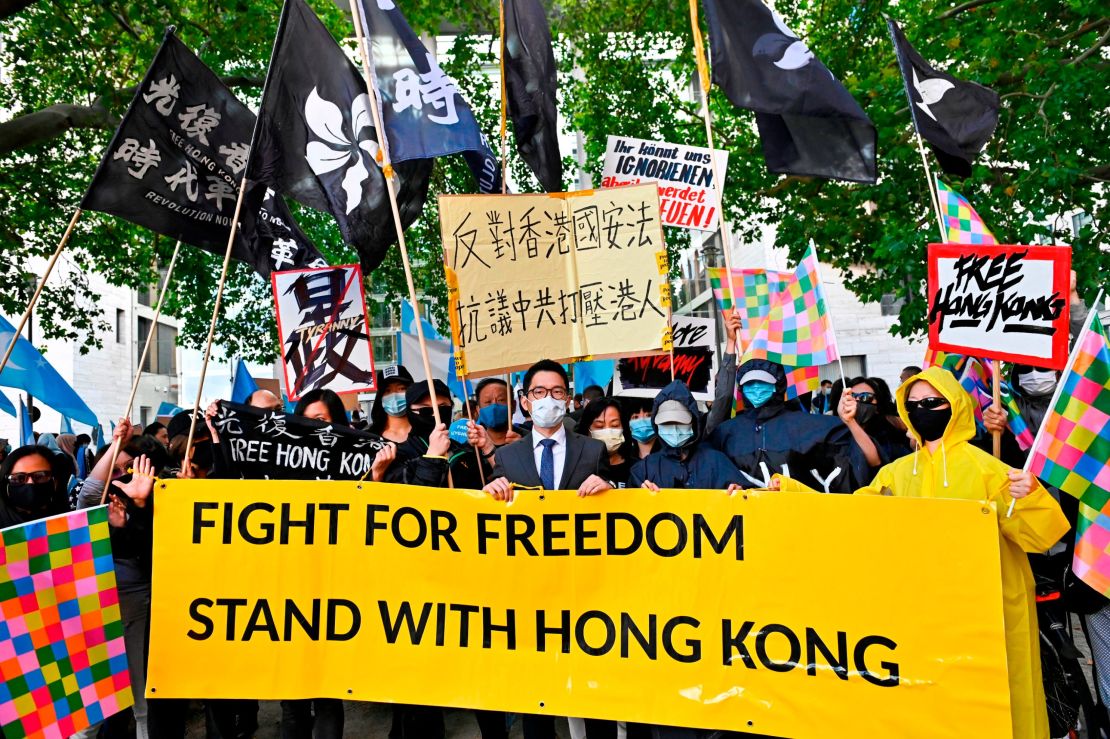The United Kingdom has unveiled a £43 million ($59 million) fund to support Hong Kongers emigrating to the country under a new scheme for holders of British National (Overseas) passports.
Hundreds of thousands of Hong Kongers are expected to move to the UK under the scheme, which provides a path to citizenship for 3 million people eligible for BN(O) status – and their estimated 2.3 million eligible dependants.
“Backed by over £43 million, the Hong Kong British Nationals (Overseas) Integration Programme will help status holders access housing, work and educational support to ensure they are able to quickly integrate and contribute to their newfound communities,” the UK Home Office said in a statement.
“The move delivers on the UK’s historic and moral commitment to the people of Hong Kong who chose to retain their ties to the UK by taking up BN(O) status in 1997. It provides them with a pathway to live in the UK should they choose to do so.”
UK BN(O) scheme angers Beijing
BN(O) holders were granted a special status in the 1980s, but for decades the document did not give them the right to work or live in the UK.
That changed last year, afterBeijing’s imposition of a national security law on Hong Kong, which banned secession, subversion and collusion with foreign forces. The law has already had a major effect on the city’s political life, with almost every prominent opposition politician currently facing subversion charges, and widespread self-censorship.
Last month, Beijing passed a new election law for Hong Kong, further limiting the right of people in the city to choose their leaders.
Both moves were met with widespread international criticism, particularly from the UK, which argued the laws breached an agreement governing Hong Kong’s 1997 handover. In turn, Beijing has accused London of acting illegally by providing a pathway to citizenship for Hong Kongers under the BN(O) scheme.
Speaking earlier this year, Chinese foreign affairs ministry spokesman Zhao Lijian accused the UK of disregarding the fact “it has been 24 years since Hong Kong returned to the motherland” and violating promises made at the time of handover.
He said the BN(O) plan “seriously violates China’s sovereignty, grossly interferes in Hong Kong affairs and China’s internal affairs, and seriously violates international law and basic norms of international relations.”
The Beijing and Hong Kong governments have said they will no longer recognize BN(O) passports as a valid travel document, though most holders also hold Hong Kong or other passports, so the effect of this will be limited.
In a statement, British Home Secretary Priti Patel said London had “promised to uphold freedom for the people of Hong Kong, which is why I am proud that we have been able to support so many people when they have needed our help.”
“It’s an unprecedented and generous scheme and there is no other visa in the world of this nature,” she added. “We are working hard to successfully resettle people here and recognize there is nothing more difficult than leaving your home to rebuild a life in a new country.”
Most of the money will go to councils in England “to provide targeted support for new arrivals,” including English language lessons and help with housing for those who need it. Some £5 million will be used to establish “12 virtual welcome hubs” across the UK, to aid Hong Kongers in matters such as applying for schools, registering with GPs or setting up businesses.
Protest leader Nathan Law granted asylum
While millions of Hong Kongers are eligible for BN(O) status, many of the younger protesters who took part in anti-government unrest which rocked the city in 2019 and attracted worldwide attention will have been born too late.
In the past year, authorities have begun rounding up and prosecuting those suspected of protest-related offenses, while other protest leaders and activists have been charged under the national security law.

This has led some to flee overseas and claim asylum, including former lawmaker and Umbrella Movement leader Nathan Law, 27, who said Wednesday he had been granted refugee status in the UK, having moved there last year amid fears he would be prosecuted under the security law.
While Law is older than many protesters, he was born in mainland China, and so is not eligible for the BN(O) scheme.
“The fact that I am wanted under the National Security Law shows that I am exposed to severe political persecution and am unlikely to return to Hong Kong without risk,” Law said on Twitter. “My situation, however, may not apply to all Hong Kong asylum seekers. Some may not have enough evidence to substantiate their claims due to lack of media reports or fleeing before the persecution. Fears over their claims being denied, most of them live in distress and anxiety.”
Law said he hoped the Home Office would “consider more comprehensive evidence” in cases involving Hong Kong protesters, so as to enable more to claim asylum in the UK.




